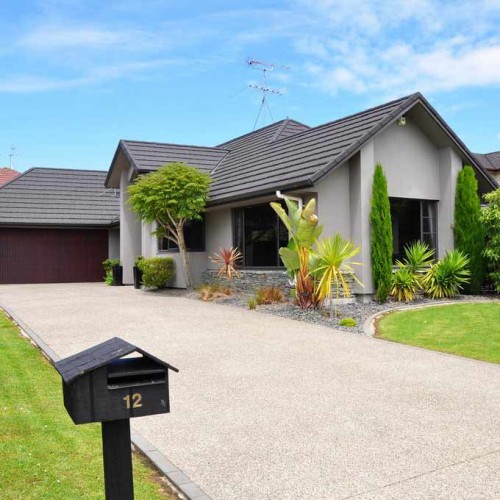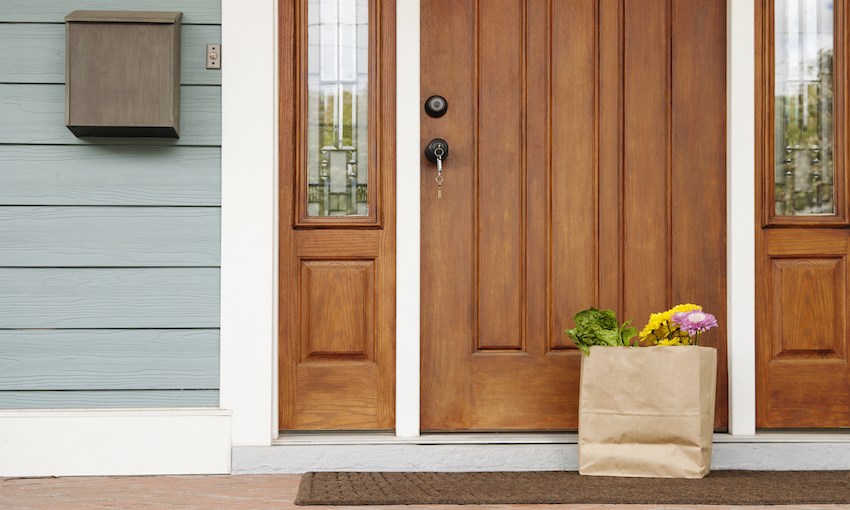
GST to be charged on the sale of a main residence?
Categories
It has been a long-held view that if a GST registered person owned a dwelling that was used as the main residence by the person or their family, then the sale of the dwelling would not be subject to GST as it is an exempt supply.
This was the view even if GST was claimed on a proportion of the costs in relation to the dwelling, due to the dwelling being partly used for business purposes.
Inland Revenue has recently released the interpretation statement IS 20/05 Goods and Services Tax – Supplies of Residences and Other Real Property that completely changes the previously understood GST position on the disposal of a residence.
What's changed and which dwellings does it apply to?
It is Inland Revenue’s view that if a GST registered person owns a dwelling, which is used as the main residence by the GST registered person or an associated person, and GST is claimed, wholly or partly, on costs relating to the dwelling, then the GST registered person will be required to charge GST at the rate of 15% on the sale of the dwelling.
The rationale behind this is that the dwelling has been used in the person’s taxable activity, therefore the sale of the dwelling is in the course or furtherance of the taxable activity.
It would appear that this has been Inland Revenue’s view since 1 April 2011.
The type of dwellings that could be subject to GST at the rate of 15% include:
- Farm dwellings
- A personal home from which a business is conducted
- A personal home that is also used as a home office
It is unlikely that a dwelling owned by a GST registered family trust or company would be subject to GST at the rate of 15% upon disposal. This is due to the fact it is likely the beneficiaries or shareholders are being charged a market rental for the use of the dwelling, therefore, the dwelling is being used wholly to make exempt supplies. Any goods or services used in relation to making exempt supplies are outside the GST net.
It is highly likely that taxpayers have not been complying with Inland Revenue’s view, which potentially puts thousands of taxpayers at risk of penalties and interest. We have brought this issue to the attention of Chartered Accountants Australia New Zealand, who we are hoping will raise this matter with Inland Revenue to negotiate a practical outcome. A practical outcome would be for Inland Revenue to take the view that if no GST was claimed on the acquisition of the dwelling then the sale of the dwelling should be an exempt supply – even if GST has been claimed on costs in relation to the dwelling.
Until Inland Revenue revises its view, it would be our recommendation that if a dwelling is caught in these rules then GST should be charged at the rate of 15%. Doing otherwise would be against Inland Revenue’s publicly stated view and put the taxpayer at risk of penalties and interest.
This situation does raise a number of questions that we address below.
What changed on 1 April 2011 in order for Inland Revenue to change its view?
Prior to 1 April 2011, the GST Act had a “principal purpose” test.
If goods and services were acquired principally for making taxable supplies then the goods and services were deemed to be acquired in the course or furtherance of a taxable activity so were caught in the GST net.
If goods and services were acquired principally for making other than taxable supplies, say exempt supplies, then the goods and services were deemed not to be acquired in the course or furtherance of a taxable activity so were outside the GST net.
In the situation a dwelling was acquired for less than 50% use then the dwelling was not deemed to be acquired in the course or furtherance of the taxable activity. Therefore, when the dwelling was sold it was not subject to GST.
From 1 April 2011, the “principal purpose” test was replaced with a “use” test, which meant that if goods or services were used in the course or furtherance of a taxable activity, then they were caught in the GST net irrespective of the extent of use.
Is it possible for the dwelling to be zero-rated for GST purposes?
The GST Act provides that if there is a supply of a dwelling then the dwelling is treated as a separate supply from all other goods and services supplied along with the dwelling. Therefore, the GST rate that applies to the supply of the dwelling is considered separately from all other goods and services supplied with it.
The GST Act provides that the supply of land can be zero-rated for GST purposes where the vendor and purchaser are both GST registered and the purchaser is going to use the land in making taxable supplies. However, a supply of land cannot be zero-rated if the purchaser, or an associated person, intends to use the land as a principal place of residence. As it is likely the purchaser would use the dwelling as a principal place of residence, it means the sale of the dwelling cannot be zero-rated for GST purposes.

Does this mean that GST can now be claimed on the purchase of a dwelling?
If a purchaser acquires a dwelling that will be used in their taxable activity they will likely be entitled to claim GST on the acquisition. However, the amount of GST that can be claimed will be restricted to the extent the dwelling will be used in the taxable activity. For example, if a farm dwelling is expected to have 20% use in the farming business then GST can be claimed to the extent of 20%.
If the vendor has charged GST at the rate of 15% on the sale of the dwelling then the purchaser can make a GST claim under normal rules.
If the vendor has treated the sale of the dwelling as an exempt supply then the purchaser will be able to make a GST claim under the second-hand goods rule. However, care needs to be taken if the dwelling is being acquired from an associated person as the amount of GST to claim could be nil.
At this stage there are a few who are likely to be saying, pardon me! You pay GST on the full sale price of the dwelling but you only get to claim a proportion of the GST on acquisition!
There is a special rule that allows the remaining GST that was not claimed on acquisition to be claimed at the time the dwelling is sold. However, the full amount of the unclaimed GST is reduced if the sale price of the dwelling is less than what it originally cost.
If you need assistance to prospect if this applies to you, myself, or one of our trusted advisors would be happy to help. Get in touch.
Ngā mihi nui,
Brad

Brad Phillips
PrincipalArmed with an extensive knowledge bank, Brad specialises in providing taxation services to clients in the corporate, business, and rural sectors. He also has a keen interest in valuation, asset protection, and estate planning matters.


 Rachel Lock
Rachel Lock
 Shanell Jarvie
Shanell Jarvie
 Alex Crackett
Alex Crackett
 Craig McCallum
Craig McCallum
